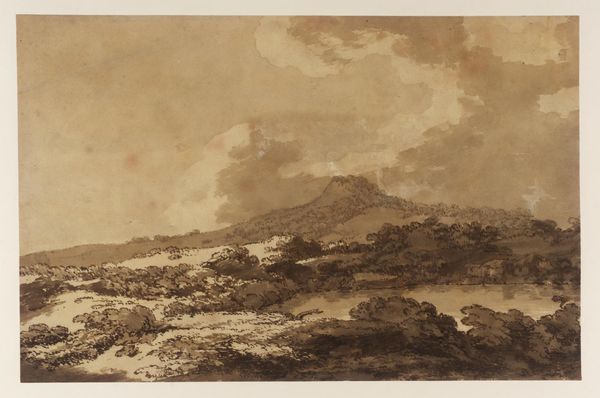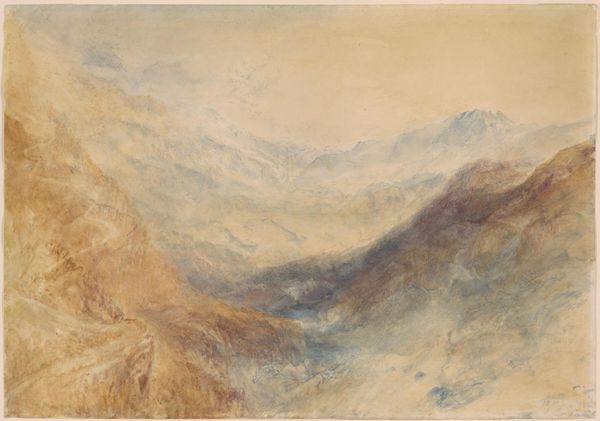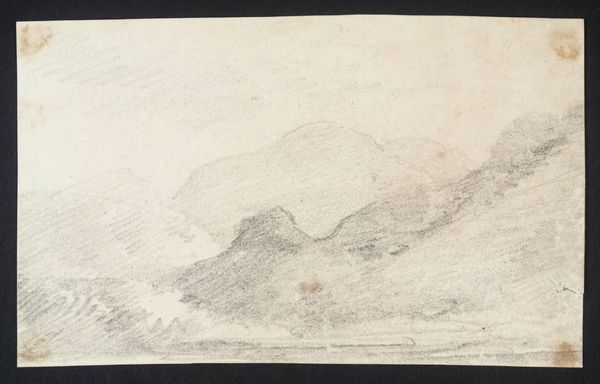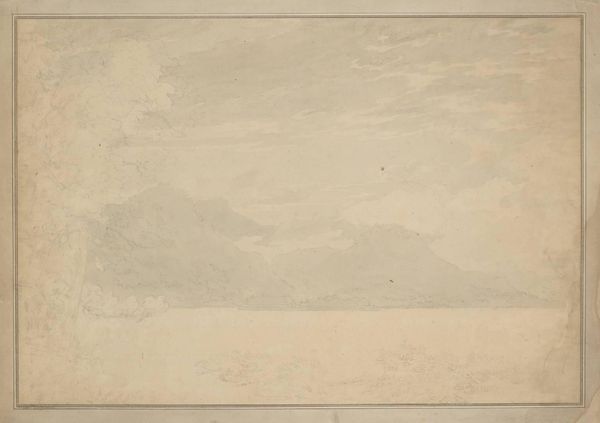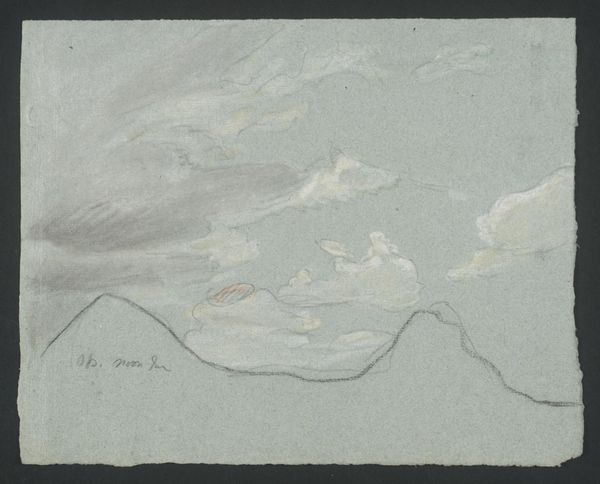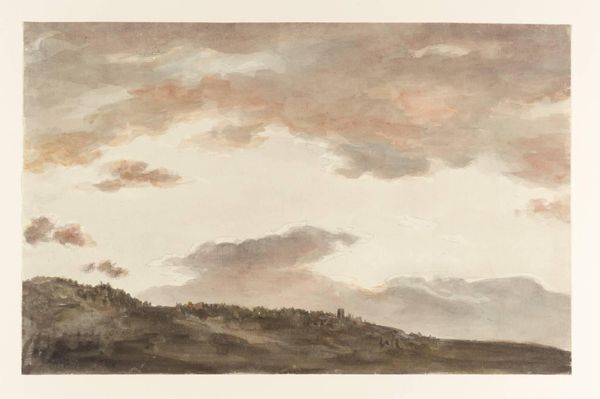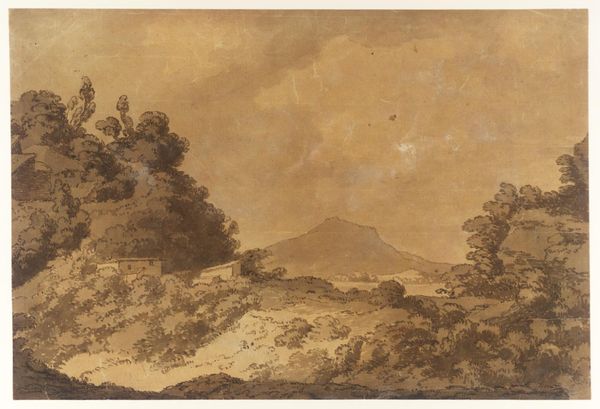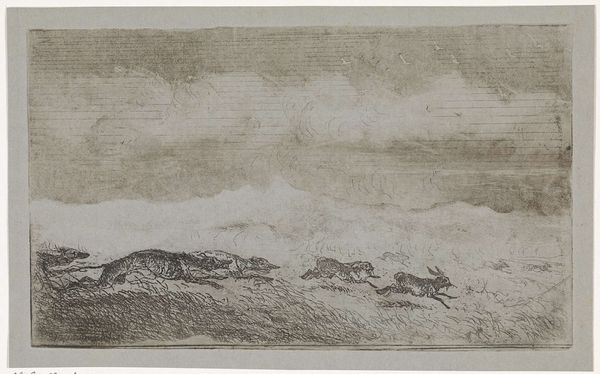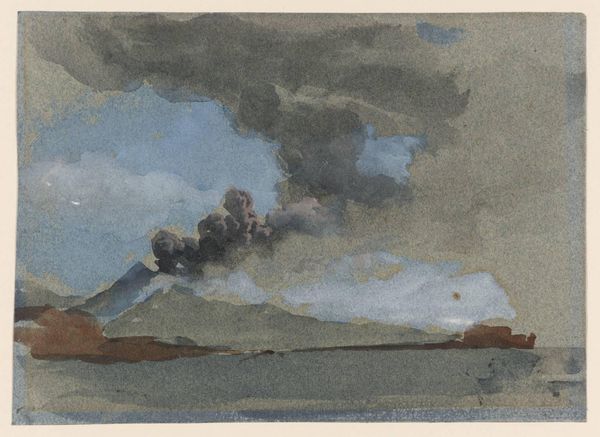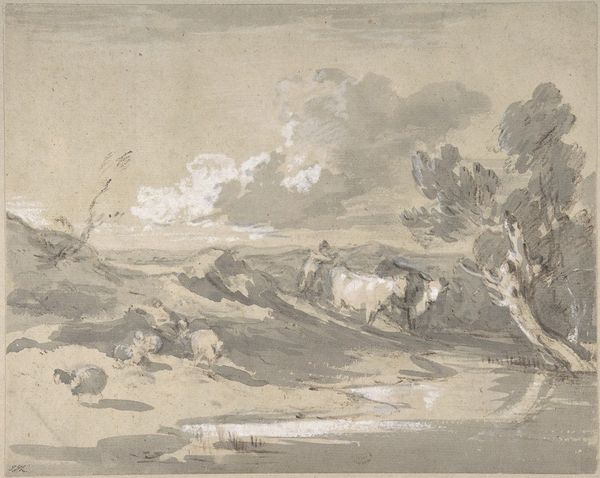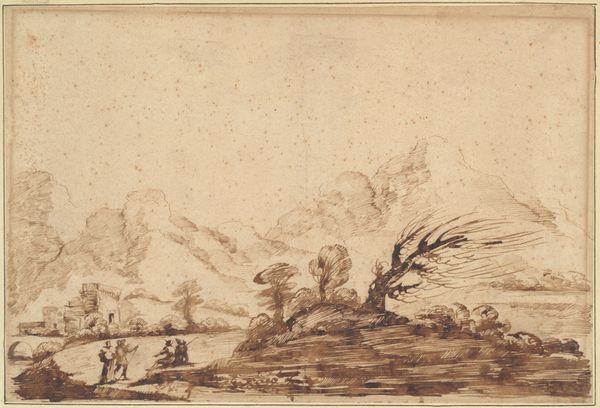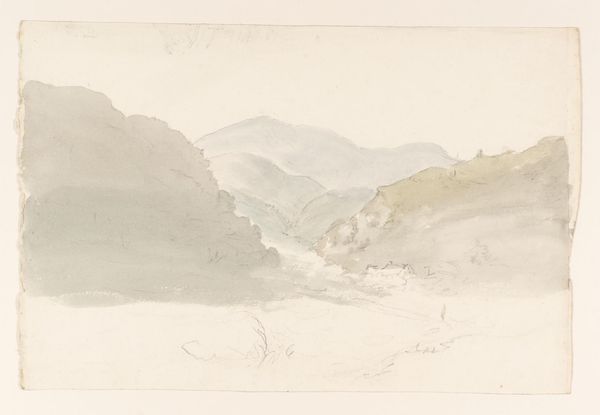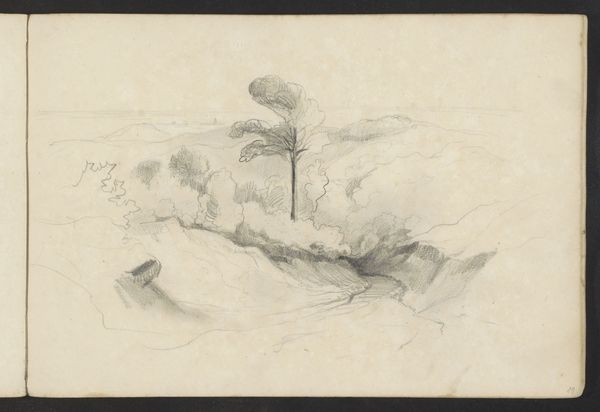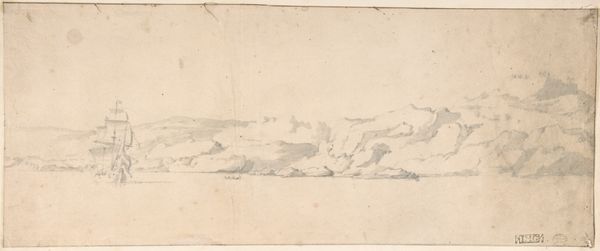
Copyright: Public domain
Curator: Let’s consider Frederic Edwin Church’s "Cotopaxi seen from Ambato, Ecuador," created in 1853. It's a watercolor housed here at the Cooper Hewitt. Editor: The muted tones are the first thing that grabs me. The brown cloud cover juxtaposed with the peak on the left almost feels ominous, as if the volcano's majesty comes with a threat. What do you think, placing this artwork into a wider historical and social setting? Curator: It’s tempting to consider Church's positioning as a landscape artist, situating the volcano—often a symbol of natural power and volatility—within the 19th-century context of nascent industrialization. It forces a dialogue on progress. It’s fascinating to examine how this image both idealizes nature and foreshadows potential ecological consequences. Editor: I agree, particularly concerning the cultural perceptions. Romanticism placed significant importance on the awe-inspiring aspects of the natural world, linking landscapes to ideas of national identity and power. What’s your impression on this notion of power? Curator: It begs questions of accessibility and ownership. For whom does this vista exist, both then and now? How are indigenous narratives erased or marginalized in favor of a romanticized view for consumption in the Global North? Church was American. What about Ecuadorian perspective? The almost blank lower register of the paper speaks volumes about unconsidered views and historical erasure. Editor: Exactly! Considering his audience—largely wealthy Americans—it reflects a societal appetite for the exotic landscape mediated through a Western gaze. It provided viewers with a safe and picturesque encounter with the wild. Curator: Looking through the lens of art and social theory allows us to confront some painful truths about art and representation, I am wondering if he questioned this representation. Editor: It encourages me to reassess artistic and societal assumptions about whose perspectives shape how landscapes are documented, shared, and even conserved, wouldn't you say? Curator: A vital point. A re-evaluation is critical. Thank you for opening the discussion on "Cotopaxi".
Comments
No comments
Be the first to comment and join the conversation on the ultimate creative platform.
